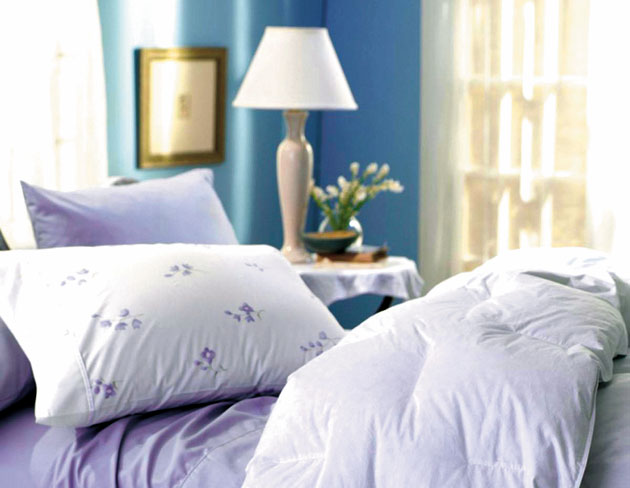How to add Mother Nature’s flourish to your bedroom
The formerly “fringe” back-to-nature movement has become mainstream in America and nowhere is the desire for a more natural approach to living more prevalent than in our homes. From organically grown fruits and vegetables to VOC-free paint choices, the trend is toward fewer additives, synthetics and chemicals.
But for all the farmers market-purchased food in the kitchen and goat milk soaps in the bathroom, one room that has been neglected in the quest for a more natural home is the bedroom. However, it doesn’t take very much to make the bedroom more natural or “green.” Here are three easy and effective tips:
Choose natural bedding materials
Down and feathers come from nature, are biodegradable and renewable; consequently they have the lowest carbon footprint of any bedding fill material. Thirty-six percent of U.S. adults use down and feather bedding precisely because it is eco-friendly, according to a recently completed Harris Survey commissioned by the American Down and Feather Council (ADFC).
Being a natural insulator, down helps regulate body heat for an optimal sleeping experience, which allows homeowners to turn down the thermostat at night and save on heating costs. The survey found that 55 percent of U.S. adults who use down and feather bedding have chosen it precisely for its natural warmth.

Add fresh plants and flowers to your decor
Live plants act as natural air filters and some plants — spider plants, Boston ferns, rubber plants and palm trees — are particularly effective absorbers of chemical pollutants emitted from carpets, furniture and electronic equipment. Adding fresh flowers and plants to your bedroom helps with the natural cycle of carbon dioxide and oxygen, improving the overall air quality in your bedroom.
Take advantage of nature’s best heater: the sun
Open blinds, draperies and shutters during the day to let solar energy warm and brighten your room naturally. In the hot summer months, be sure to do the opposite, and close your window coverings to prevent your bedroom from over-heating and causing air conditioning units or fans to work harder, thus using more energy.
This article is courtesy of Brandpoint.